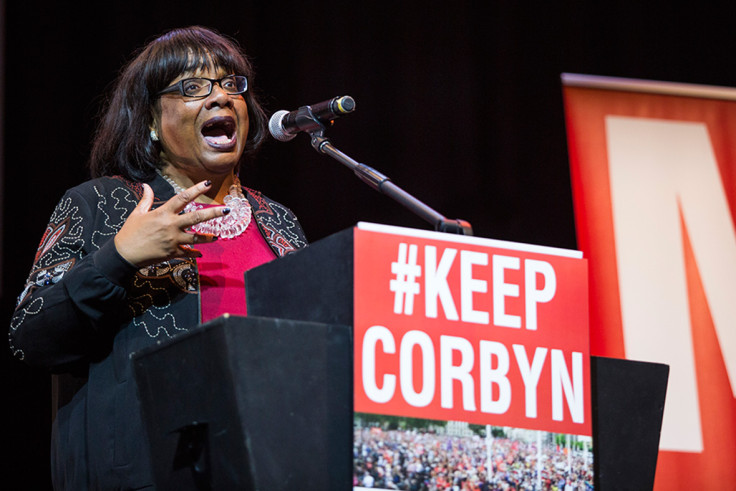Labour is at a crossroads - it must accommodate Leave voters or risk losing them
We must stand up for the British interest and oppose free movement.
The United Kingdom is still a full member of the European Union and will be a full member until we formally trigger Article 50, beginning the process of withdrawal. Whoever emerges as leader of the Conservative Party and Prime Minister must be prepared to work with all parties in the House of Commons to secure the best deal for the UK in its new relationship with the EU. In the same vein, the Labour Party should be fully prepared to accept any invitation to work with the government for a successful Brexit.
At present, the Labour Party is in the midst of a leadership crisis. The Labour leader, Jeremy Corbyn, was elected on a huge mandate by the membership just under a year ago but a majority of Labour MPs passed a motion of no confidence in Corbyn's leadership. The trade unions are trying to broker a deal between the feuding camps.
At a time when Labour should be uniting in the national interest, factions are hell bent on destroying the Labour Party. While the nation desperately needs leadership and wise counsel, groups within the Parliamentary Labour Party are abdicating their responsibilities to the party and to the nation.
The EU Referendum has exposed the deep divisions within the country. North and south. Rich and poor. Working class and the more affluent. Worryingly for Labour, a schism that has existed for some time has become raw and real. With the exception of 10 MPs, every other Labour Member of Parliament backed a vote to remain in the EU. Despite this, virtually every Labour seat outside of London voted to leave by significant majorities. A gulf and breach has developed and Labour must desperately try and recover this ground if it is to prevent Ukip filling the void.
Millions of Labour voters opted to leave the EU. They voted to leave because they felt that their elected representatives did not have control of our country's borders and that levels of immigration are too high. They did so because they wanted to protect public services from the Trans-Atlantic Trade and Investment Partnership (TTIP). They wanted to leave the EU because they wanted our Parliament and our Courts to be the sovereign governing bodies of this United Kingdom. Labour voters felt our contributions to the EU budget was far too high when at home communities were suffering austerity.
A gulf and breach has developed and Labour must desperately try and recover this ground if it is to prevent UKIP filling the void.
The LabourInforBritain campaign succeeded in convincing a majority of Labour voters to support Remain. However a third of Labour voters rejected the Party's official position and supported Labour Leave. They want to see a different Labour Party in a post-Brexit Britain. If Labour is to maintain the support of these voters then Labour must ensure it accommodates them or face the consequences of losing them and never forming a majority Labour government again. The withdrawal negotiations will provide a golden opportunity for Labour to begin this work.
The Single Market is an integral part of the European project. The big debate around the UK's withdrawal from the EU will focus on what kind of relationship will exist between the UK and the Single Market. Conditions of membership of this protectionist block require the free movement of people resulting in uncontrolled migration.

If Labour is serious about holding on to those three million Brexit-supporting Labour voters then it should support coming out of the Single Market so that the UK can have full control of its own borders, and control its own immigration policy. It is very unlikely that other EU member states would agree to the UK remaining a member of the Single Market without free movement and if we did remain they would more than likely see to impose this upon us. Now is the time for Labour to stand up for the British interest and oppose free movement.
Of course, outside of the Single Market the UK would pay World Trade Organization tariffs on visible exports to the EU, but the EU would also have to pay tariffs on exports to the UK. It is in the interests of both the EU and the UK that a free trade agreement is established as soon as possible. There is no reason why such an agreement could not be pursued during the formal negotiations once Article 50 had been triggered. Labour should be bold and place pressure on the government to follow such a policy.
Leaving the European Union provides the United Kingdom with a tremendous global opportunity to build trade and commercial relationships with countries the world over. It will provide the UK and with an opportunity to encourage a global race to the top in workers' rights and employment protections. Labour should harness this opportunity to build on the advantages of being outside the EU to develop a winning manifesto for 2020. Labour is at a crossroads, if it embraces this opportunity it can win, but if it ignores the 'Labour Leave' vote it risks never being in power again.
Brendan Chilton is General Secretary of Labour Leave
© Copyright IBTimes 2025. All rights reserved.






















